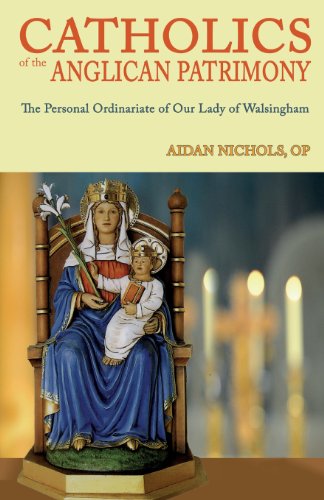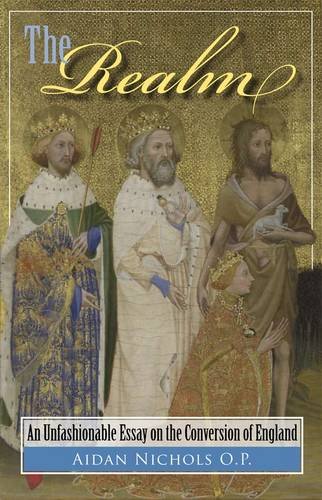“Who do you say that I am?”
That
there were different rumours surrounding Jesus' mission can hardly be
surprising given the amazing affect He had upon people; whether it
was through His healing, exorcism, or His teaching. It is a tribute
to the Hebrew pysche that all these things led them to ask a question
about Jesus' being. “Who is He?” not just “What
can He do for me?” For they thought He might be “John the
Baptist” or “Elijah” or another prophet. That the rumourmongers
got it wrong does not take away they were asking the right question.
In
our own age I wonder if the rumourmongers would ask that
question – I fear that the majority would prefer “What can He do
for me?” We live in a
technological age where function is regarded above who we truly are.
And according to the teaching of Bl Pope John Paul II this reveals a
very significant fault-line. For utility is the opposite of love.
Utility, or the priority of function over being, opposes real love.
For real love is not about using someone. Love is divinely revealed
to us most fully in the Incarnation – as St Paul put in his letter
to the Philippians, “He did not cling to his equality with God but
emptied
Himself...” God shows that the epitomy of love is found in
self-sacrifice – as our Lord echoed in His teaching that “greater
love has no man than this, that he give up his life for his friends”.
And this is the basis, not only of the Incarnation of course, but the
life of the persons of the Trinity. The three Persons of the Trinity
exist together in unity not through using one another but by emptying
themselves in Love. The Father so loves the world that He gives up
His only Son. The Son has nothing of Himself but receives everything
from the Father. And the Spirit teaches nothing of Himself but passes
on all that the Father reveals to Him. This principle of love through
self-emptying, being the basis of life in the Holy Trinity, means
that it is the principle of love and life for us as well. This is
because, human beings are made in the image of God, and now united
with Christ, yearn for a life that is a life of self-emptying love –
it is the way we are made. Our hearts remain restless until they find
their rest in God the Trinity.
In
contemplating the nature and vocation of the Ordinariate recently, I
have been struck by how often this Trinitarian theme is realised in
our life together. The path to real Christian unity, that is, full
Communion, has involved us in self-emptying in various ways. We have
had to empty ourselves of pride, and launch out into the deep in
faith. We have had to leave behind securities and friendships. We
have had to face criticism both from old Anglican friends but also
some of our new Catholic friends. In receiving the teaching authority
of the Catholic Church we have had to accept that, except for Baptism
and Holy Matrimony, the sacraments of the Anglican Communion do not
possess the fullness that we once thought they did, not least in our
Confirmation and Ordination. We have had to accept the newness of the
Ordinariate as our new home, that it is not fully formed yet and that
many in the Catholic Church do not understand it nor see the
excitement of the vision behind it. The very nature of the
Ordinariate, alongside Dioceses, also witnesses to unity in
diversity, that is based in our Trinitarian Faith. Just as the
Persons of the Trinity remain in complete union with each other, they
also retain their identity as unique Persons. Our identity as being
of the Anglican Tradition has not been obliterated by absorption, so
that we gradually lose our Anglican ways because inevitably there is
little opportunity to live it out in a diocesan parish. All over the
country Catholics that were formerly Anglican have come to
Ordinariate worship or other events and said something along the
lines, “O at last! How wonderful to be here! We have missed this so
much!” Whether it is to do with hymnody, reverent worship, or the
seeing of parish life as a community, there are good things missing
from life in the Catholic Church that former Anglicans miss.
The origin of the Ordinariates is in the generosity of the then Pope
Benedict who recognised that Anglicans had precious treasures which
the Catholic Church could benefit from.
But
we have realised not
so much that we have treasures but that the Catholic Church has many
more treasures for us. We have learned that being in the full
Communion of the Catholic Church, in full Communion with the
successor of Peter, far outweighs any gifts we can bring. That in the
light of entering into full Communion we have received greater
clarity of our Faith and a fuller reception of grace, than we had
ever known before. Not of course that we reject everything we knew
before, but in the light of being in full Communion we see more
clearly the treasures we had as Anglicans and that sometimes we
didn't realise we had them!
No doubt rumours abound about the Ordinariates, not least on the
internet. Some might be positive, some negative. But we must not be
disturbed by rumours. We must rest in who we are, by God's grace. We
are members of the Ordinariate which is of the Holy Spirit. It is
something much greater than any of us, or even the sum of us all. In
St Paul's words, “If God is for us, who can be against us?” The
Ordinariate is, I believe, God's initiative for the recovery of unity
so that the Church can be more effective in its witness to the world.
Let us then be confident and filled with joy for God has called us
together for this work, and though the way of the Cross involves
self-sacrifice, we know through experience, that self-emptying bears
much more fruit than we can imagine.
[A sermon preached on 23rd June 2013 - Trinity 4 C - by Fr Ian Hellyer]






